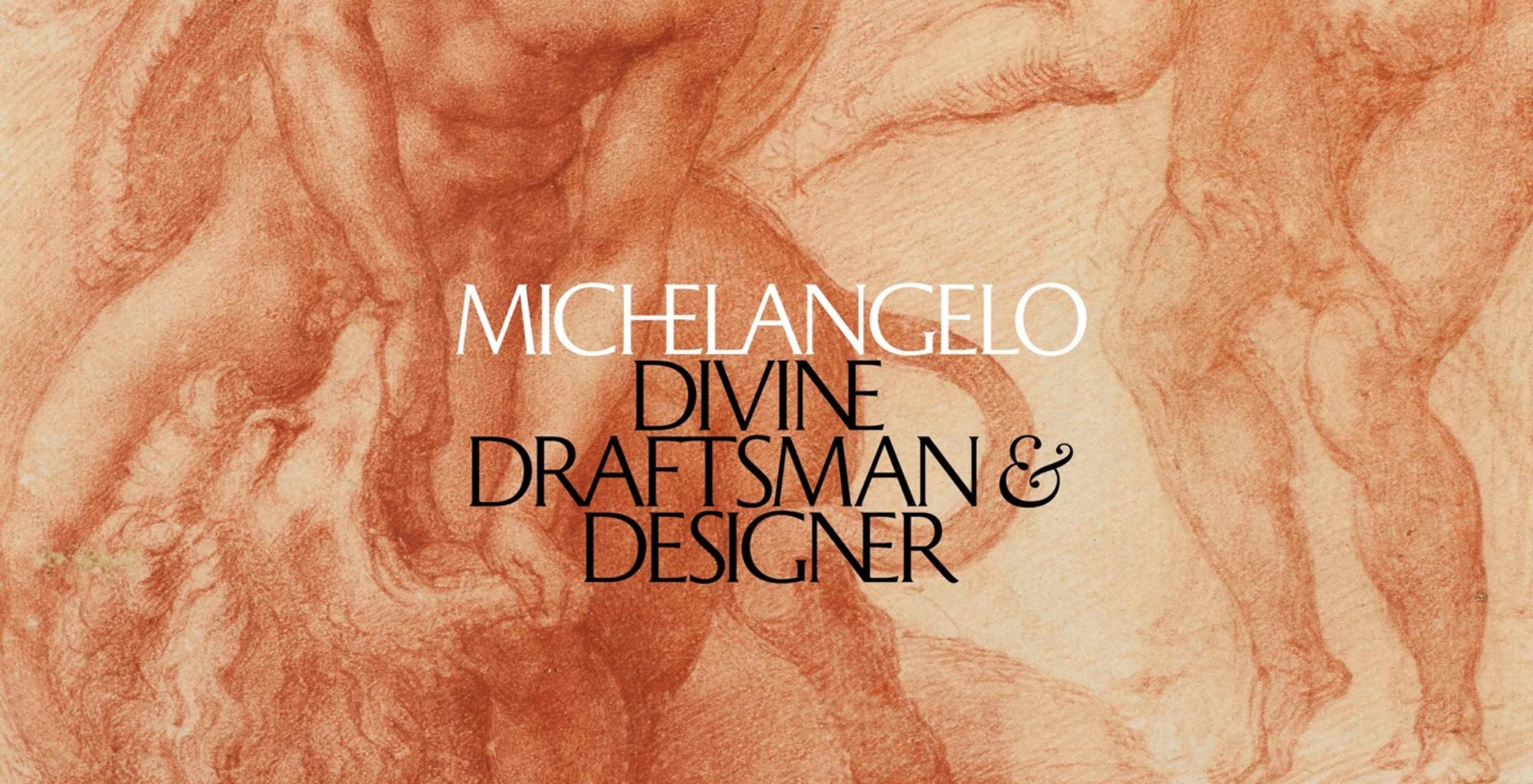Michelangelo is coming to town November 13th
"Michelangelo Buonarroti (1475–1564), a towering genius in the history of Western art, will be the subject of this once-in-a-lifetime exhibition. During his long life, Michelangelo was celebrated for the excellence of his disegno, the power of drawing and invention that provided the foundation for all the arts. For his mastery of drawing, design, sculpture, painting, and architecture, he was called Il Divino (“the divine one”) by his contemporaries. His powerful imagery and dazzling technical virtuosity transported viewers and imbued all of his works with a staggering force that continues to enthrall us today."
.
I remember spending hours and days with his work in Rome and Florence. With his sculptures, with his paintings and frescoes, with the St Peters Church, also at the Vatican museums and remember losing my footing at the Sistine Chapel.
I also like – to some degree – his slaves. Not a big fan of the condition of being imprisoned in any shape or form. But we are all slaves until we find what truly saves us.
Michelangelo also embodied the very modern idea of using and innovating technology to further art. Michelangelo was a very technical artist – I remember a conversation at a conference once — where we argued about art and the impression that artists are these soft creatures who flail their limbs about hoping to make the correct gesture into artwork.
Michelangelo’s work is so much more impressive because it required substantial engineering skills to be completed. Even his marble carving of David is one that required engineering thought to free the statue from the odd shaped block of marble. I also have this very odd affinity to marble, I am not saying I like it because I feel very physically drawn to it, almost like a magnet. And whenever I look at great marble I feel glued to it with invisible strings which are very hard to abandon.
The artist also epitomized what I call the Continuous Commitment To Excellence principle. In modern terms Continuous Commitment To Excellence is what Lucasfilm and Apple employ.
Because ultimately it is single individuals that are capable of creating long lasting value and when looking for values to adhere to - I ask - does it hold up after 200 years and why. If there are sculptures that are 500 or 2000 years old and have people still moved and enthralled then there is a long lasting value in them. Usually it is beauty, ideas, skills and mastery of execution. There were recently works at the Morgan museum that were from 3300-2250 B.C and beautifully crafted. I bet whoever made them never thought there's going to be a creature 5000 years later admiring their work.
With Michelangelo it is that every single work has so much power and mastery to make a lasting impression 500 years later. What underlies this kind of achievement and strength in a work of art? He made sure to become the craftsmen, problem solver and engineer of his works. You can't be an artist before you are craftsmen. You will need to put in the 10 000 hours in some sort of craft, whatever you can tolerate doing for 10 000 hours. These hours will allow you to become an automatic creator and a good judge of beauty. There are a lot of problems that arise in art and mastering a process will teach you the good practices of problem solving which will allow you to go further than the ones who never mastered a process.
In a world where we are constantly submerged in a Hot Fuzz of markets, teslas, rockets, leadership seminars, virtual realities of all kinds, blade runner futures, menacing robots - all that really matters is the genius of man.
If you get a chance - make sure to see one of his works in person. You will be standing in front of a work of art that outlived many great things on account of being a product of a man determined to be excellent. Michelangelo fought so many battles for the most mundane things like the quality of his marble, the envy of his contemporaries, the papal politics. There were years when he couldn't be productive and faced many setbacks. The only constant was that with every project he undertook he committed to creating beauty and long lasting value by adhering to his own high standards.
